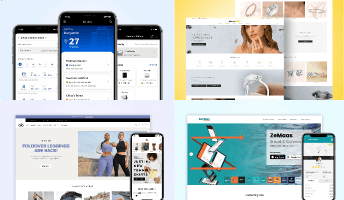How to Leverage Generative AI for HR and Talent Management Excellence
.jpg)
What is the most valuable asset of any organization? The simple answer to this question is - its PEOPLE. Effective management of human resources (HR) and talent is crucial to the success of every organization. As businesses strive to remain competitive, it becomes increasingly apparent to look for innovative solutions that help them optimize the processes involved in HR and talent management. One of the most promising and effective of these solutions is Generative AI.
Generative AI holds immense potential in transforming HR and talent management processes, which include recruitment, onboarding, skill development, and employee engagement. From automating routine tasks to providing valuable insights through data analysis, the integration of Generative AI promises to reinvent the way organizations attract, manage, and develop their human capital.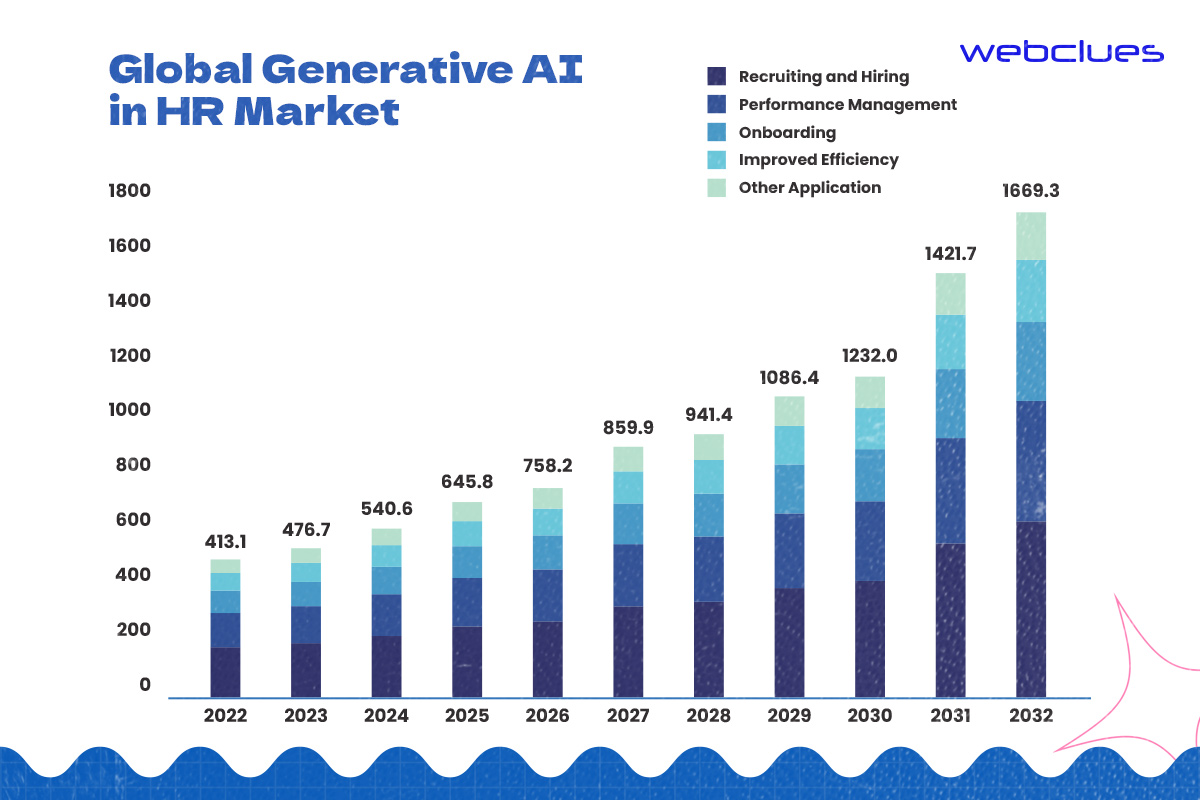
Current Landscape of HR and Talent Management
Despite the evolution of HR practices over the years, organizations still grapple with several persistent challenges. These challenges include but are not limited to cumbersome recruitment processes, subjective decision-making, and the need for continuous employee upskilling. Additionally, the rising complexity of workforce dynamics, especially in the context of remote and global teams, poses new hurdles for HR professionals.
Organizations have resorted to various technology tools to address these challenges. Applicant Tracking Systems (ATS), Learning Management Systems (LMS), and Performance Management Software are some of the commonly adopted ones. These technologies, without a doubt, have improved several aspects of HR and recruitment management. For instance, they prove useful in automating processes and providing valuable insights through data analytics.
However, these existing technologies often fall short in handling the nuances of human interactions and the dynamic nature of modern workspaces. The limitations of these technologies become apparent when faced with tasks that demand a deep understanding of natural language, context, and the ability to adapt to unforeseen scenarios. Resume screening, for example, may overlook candidates with unconventional but valuable experiences. Performance evaluations may not capture the full spectrum of an employee's contributions.
Furthermore, many HR technologies are isolated from each other, which causes data to be scattered and incomplete. This makes it hard to see the whole picture of the employee journey. This data fragmentation can also affect the quality of decisions and the speed of adaptation to changing business demands.
Understanding Generative AI
If you’re curious about what is Generative AI, it is a subset of artificial intelligence (AI) that focuses on creating models capable of generating new and contextually relevant content. It operates on the principles of deep learning and neural networks and leverages vast amounts of data to improve its understanding and capabilities over time.
How Generative AI Differs from Traditional HR Technologies
A Generative AI agency can transform HR processes by offering a new approach to traditional HR technologies. It can work with unstructured and diverse data sets, unlike rule-based systems that need predefined criteria and structured data. Traditional HR technologies are often rigid and slow to change, while Generative AI can cope with the changing and complex nature of human interactions in modern workplaces.
By understanding context, generating responses accordingly, and learning from new information, Generative AI mimics human-like and subtle reasoning. It can perform tasks that need natural language understanding, making it a powerful tool for tasks such as screening resumes, matching candidates, and analyzing employee engagement.
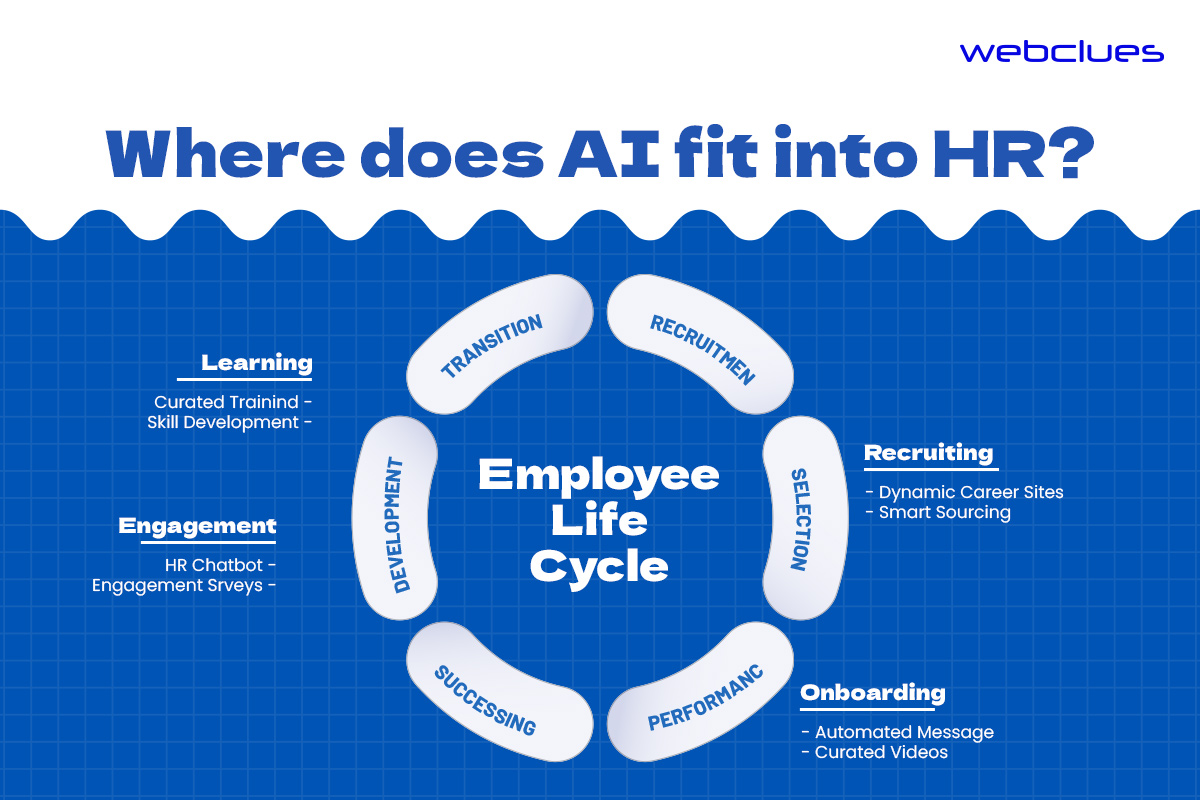
Applications of Generative AI in HR
So, how can HR professionals leverage generative AI development services in their work? Here are some examples of Generative AI applications in HR.
Resume Screening and Candidate Matching
One of the most time-consuming and tedious tasks for HR is screening and matching resumes to job openings. Traditional systems often rely on keyword matching, leading to the oversight of candidates with unconventional experiences or varied skill sets. With Generative AI, resume screening becomes more dynamic. It can automate and optimize this process, by generating and ranking candidates based on their fit to the job requirements, skills, and culture. It understands context, interprets nuanced information, and evaluates candidates based on a holistic view of their qualifications and potential contributions. This improves the chances of discovering hidden talent.
Moreover, Generative AI can create personalized and engaging messages to communicate with candidates, such as invitations, rejections, or feedback.
Automated Interview Scheduling and Virtual Interviews
Scheduling interviews can be a logistical challenge, especially when dealing with multiple candidates and interviewers. Generative AI automates and enhances this process by generating and managing the interview calendar, coordinating schedules, sending invitations, reminders, and confirmations, and conducting virtual interviews. Moreover, the integration of virtual interviews powered by AI allows for a more standardized and unbiased interview experience. Generative AI can analyze interview responses and provide insights beyond traditional evaluations, such as evaluating soft skills and cultural fit. It can also assist in generating interview questions, scripts, and feedback, based on the job role, level, and competencies.
Skill Assessment and Predictive Analytics
One of the most important and strategic aspects of talent management is assessing and developing the skills and competencies of the employees. Generative AI can analyze data from various sources, including performance records and training history, to provide a comprehensive understanding of an individual's skills. For instance, it can generate and administer skill assessments, such as tests, quizzes, and simulations, and provide feedback and recommendations.
Predictive analytics powered by Generative AI can forecast future skill requirements, allowing organizations to actively address skill gaps and plan for workforce development.
Onboarding and Training Programs
Generative AI enhances the onboarding and training experience for new hires. It can create personalized onboarding materials, adapting content based on the individual's role, background, and learning preferences. For instance, it can generate videos, articles, or podcasts and provide feedback and support. Additionally, by analyzing learning patterns, Generative AI can recommend personalized training programs to accelerate the training process and ensure employees acquire the necessary skills in an efficient manner.
Employee Engagement and Sentiment Analysis
Employee sentiment and engagement are critical for a positive workplace. Generative AI, using advanced language processing, understands the subtleties of how employees express themselves. This means that HR professionals can get a more accurate picture of how people really feel.
Generative AI is capable of spotting trends and potential issues in real time. It doesn't just wait for traditional surveys; it provides instant insights, allowing HR teams to address concerns before they become big problems and have a constant finger on the pulse of the organization. Plus, Generative AI adapts and learns over time, ensuring its insights stay relevant as the workplace evolves.
This capability of Generative AI helps HR to personalize engagement strategies based on individual sentiments. It makes their initiatives more effective, actively shaping a positive and responsive workplace culture.
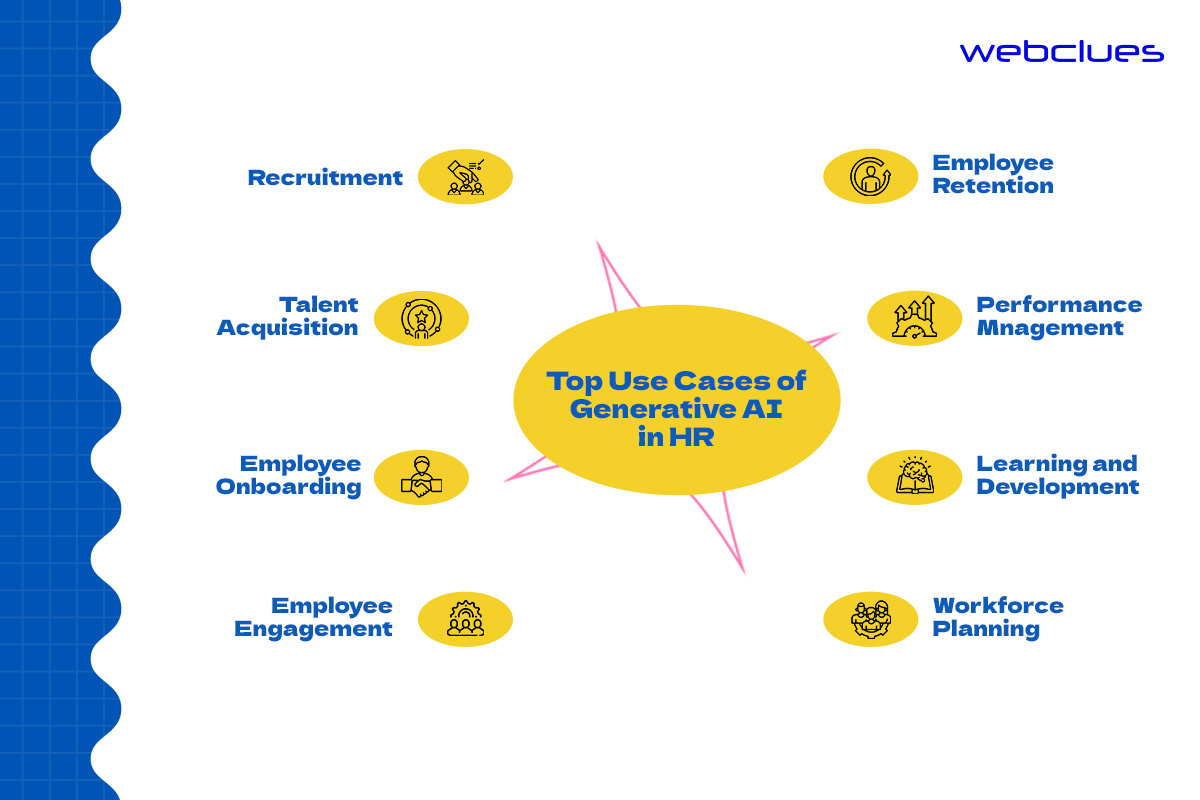
Benefits of Integrating Generative AI in HR
Generative AI brings a myriad of benefits to HR and talent management, transforming the way organizations attract, nurture, and retain their workforce. Let's explore the key advantages of integrating Generative AI into HR processes.
Efficiency and Time Savings
One of the most immediate benefits of Generative AI in HR is the significant improvement in efficiency and time savings. Automation of routine tasks such as resume screening, interview scheduling, and data analysis accelerates the hiring process. HR professionals can redirect their efforts towards more strategic and value-added activities, thus devising a more efficient recruitment and talent management pipeline.
Improved Candidate and Employee Experience
Generative AI contributes to a more positive experience for both candidates and employees. In the recruitment phase, candidates benefit from a more personalized and fair assessment process, thanks to advanced resume screening and interview scheduling. For existing employees, personalized learning and development programs boost professional growth, leading to increased job satisfaction and engagement. Essentially, Generative AI can help HR professionals improve the diversity and inclusion of the workforce, along with creating a work environment, where candidates and employees feel valued, respected, and supported.
Enhanced Data-Driven Decision-Making
The integration of Generative AI brings a data revolution to HR. It can examine large amounts of unstructured data, such as candidate behavior, employee feedback, and performance indicators. This helps HR professionals understand the workforce better. This data-based approach helps them make better decisions, from hiring plans to employee happiness programs, creating a culture of constant improvement.
Personalized Learning and Development
By understanding the skills, preferences, and learning styles of each employee, Generative AI can create customized learning and development programs. Employees get training that matches their career aspirations and the organization’s needs. This improves the results of training initiatives and also leads to higher employee satisfaction and retention.
Scalability and Adaptability to Changing Workforce Needs
Generative AI can keep up with the changing workforce needs as organizations evolve. It ensures HR processes can change flexibly to meet different demands. Whether it’s increasing recruitment efforts during growth or modifying training programs to cover new skill gaps, Generative AI offers the agility needed to cope with the dynamic nature of the workforce today.
Challenges and Ethical Considerations
As Generative AI becomes an integral part of HR and recruitment processes, it brings forth a set of challenges and ethical considerations that demand careful consideration and proactive measures.
Bias in AI Algorithms and its Impact on HR Decisions
The potential bias embedded in AI algorithms poses a significant challenge. Generative AI models learn from historical data, and if that data contains biases, the AI system can inadvertently perpetuate them. In HR, this bias can manifest in recruitment processes, affecting candidate selection and employee evaluations. As a result, it is important to ensure that the data is collected, processed, and used in a transparent and ethical way and that the system is regularly monitored and evaluated for potential issues.
Privacy Concerns in Data Collection and Analysis
AI systems often handle sensitive and personal information, such as health records, financial transactions, or biometric data. This poses risks to the privacy and security of the individuals and organizations involved, especially if the data is leaked, hacked, or misused. As a result, when hiring generative AI developers, it is essential to ensure that robust data protection measures like appropriate encryption, authentication, and access control mechanisms, clear communication about data usage, and compliance with privacy regulations are in place to address these concerns and maintain trust among employees.
Ensuring Transparency and Fairness in AI-Driven Processes
Transparency is crucial when implementing Generative AI in HR. Employees and candidates deserve to know how AI influences decisions. HR professionals should aim for transparency to earn trust and confidence. Also, to make sure AI-driven processes are fair, they need regular monitoring, auditing, and adjustments to prevent undesired consequences and achieve fair outcomes.
Addressing Employee Concerns and Resistance to AI Adoption
The introduction of Generative AI may face resistance and concerns from employees who fear job displacement, loss of privacy, or distrust in automated decision-making. HR teams need effective communication strategies to address these concerns, stressing the improvement rather than the replacement of human roles. Educating and engaging employees in the AI adoption process can help create a positive outlook toward these technological improvements.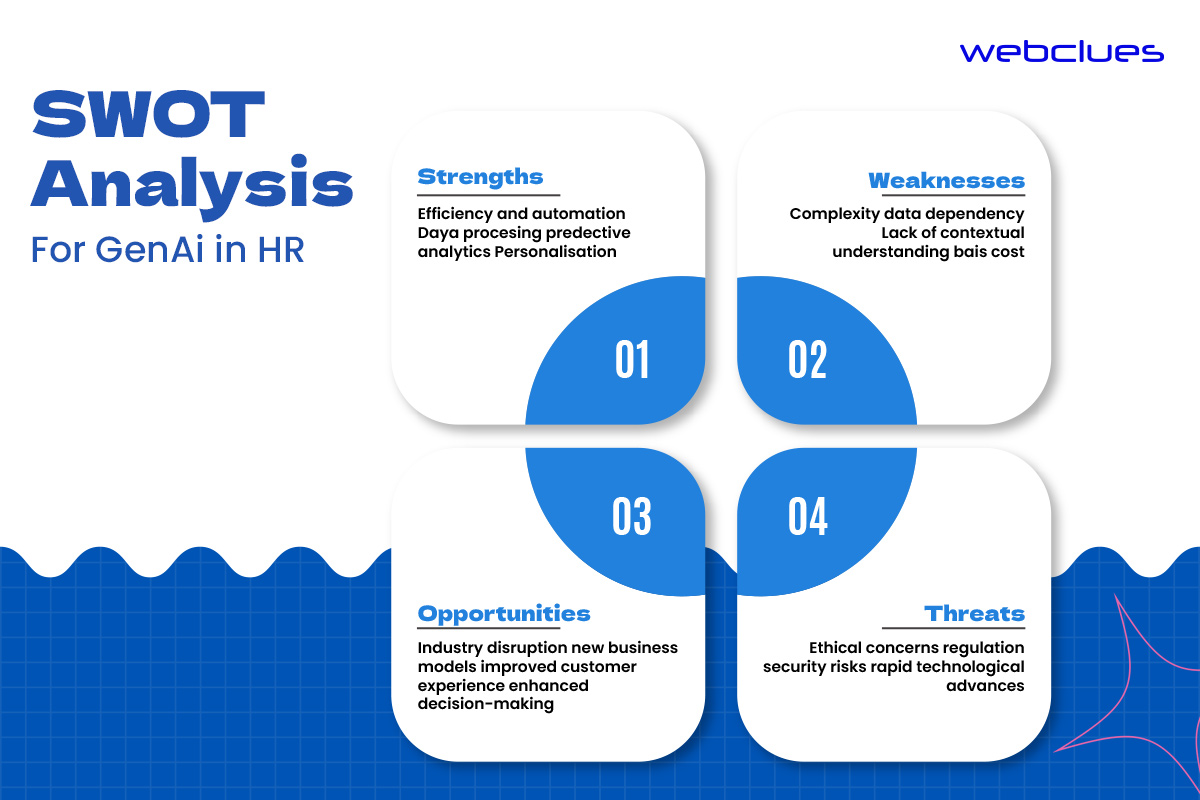
Case Studies and Success Stories
By looking at how Generative AI is applied in HR, we can see the concrete benefits and positive changes that organizations leading this technological revolution are enjoying.
Unilever
Unilever, a global consumer goods company, incorporated Generative AI in its recruitment processes to optimize candidate screening. By leveraging AI algorithms, Unilever improved the efficiency of resume parsing and candidate matching. This resulted in a more accurate identification of qualified candidates, significantly reducing time-to-hire and enhancing the overall recruitment experience.
IBM
IBM integrated Generative AI into its learning and development programs to create personalized training modules. By analyzing individual employee skills, preferences, and learning patterns, IBM customized training content to align with each employee's career goals. This not only boosted the effectiveness of training initiatives but also contributed to increased employee satisfaction and skill development.
Siemens
Siemens, a multinational conglomerate, has integrated Generative AI into its employee onboarding procedures. The company’s AI algorithms examine new employees’ backgrounds, preferences, and job roles to customize onboarding experiences. This individualized approach makes sure that new hires get the information and training that suit their roles, making it easier for them to join the organization and adapt to the company culture.
Future Trends in AI-Powered HR
As Generative AI continues to reshape HR and talent management, the future holds exciting possibilities with evolving roles, integration with other cutting-edge technologies, and transformative predictions for the HR domain.
Evolving Role of Generative AI in HR and Talent Management
Hyper-Personalization in Employee Experiences: Generative AI is poised to take employee experiences to the next level through hyper-personalization. By analyzing individual preferences, work styles, and career aspirations, AI-driven systems can customize not only learning and development but also daily work experiences, making a more enjoyable and engaging environment for every employee.
Strategic Workforce Planning: Future applications of Generative AI in HR will extend to strategic workforce planning. By using AI to do predictive analytics and scenario modeling, HR professionals can forecast talent needs, identify potential skill gaps, and develop proactive strategies to ensure a skilled and adaptable workforce.
Integration with Other Emerging Technologies
Blockchain for Secure Talent Management: The integration of Generative AI with blockchain technology holds the promise of improving the security and transparency of talent management processes. Blockchain can be utilized to securely store and verify employee credentials, solidifying the integrity of the talent pool and minimizing risks associated with inaccurate or fraudulent information.
AR/VR for Immersive Training and Onboarding: The combination of Generative AI with Augmented Reality (AR) and Virtual Reality (VR) is set to revolutionize training and onboarding. Immersive experiences powered by AI-driven content creation will allow employees to undergo realistic simulations, boosting skill development, and providing a more interactive onboarding experience.
Predictions for the Future of HR Workforces and Job Roles
Rise of AI-Enhanced HR Roles: AI will become more involved in HR processes, leading to new AI-enhanced HR roles. HR professionals will work closely with AI systems, using the technology to make smarter decisions, examine complex data sets, and concentrate on high-level, human-focused tasks that need empathy, creativity, and subtle judgment.
Shift towards Skill-Centric Hiring: Skill-centric hiring will become more important in the future of HR. Generative AI will help evaluate and forecast the changing skill needs for job roles. This shift will focus on competencies and adaptability rather than traditional qualifications, creating a more dynamic and agile workforce.
Conclusion
It's evident that Generative AI development companies hold the potential to revolutionize the way organizations attract, nurture, and retain their most valuable asset—their people. It is exciting to move towards a future where Generative AI and HR & talent management work together effectively. It means a future where organizations are both efficient and empathetic, using data to make decisions while keeping the human touch in HR practices. As we join this transformational wave, the opportunities are endless, and the potential for a positive impact on workplaces worldwide is significant.
Essentially, Generative AI is a dynamic force that helps HR professionals to innovate, adapt, and create workplaces that inspire and nurture the best in every individual. The future of human resource and talent management seems brighter than ever with Generative AI leading the way.
Build Your Agile Team
Hire Skilled Developer From Us
Enhance your HR and recruitment processes to the next level with Generative AI
Generative AI solutions can transform HR and talent management in an unprecedented manner. At Webclues we can help you leverage this incredible technology to elevate your HR process.
Get in Touch!Our Recent Blogs
Sharing knowledge helps us grow, stay motivated and stay on-track with frontier technological and design concepts. Developers and business innovators, customers and employees - our events are all about you.

